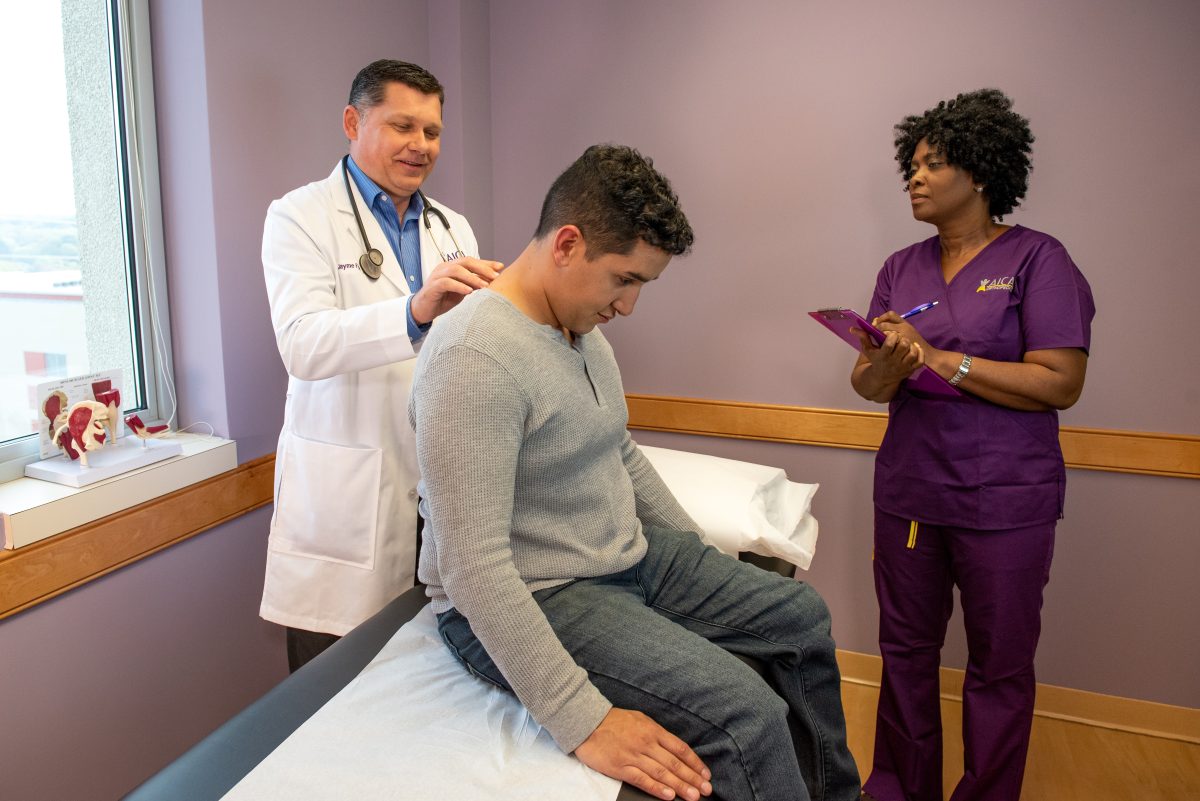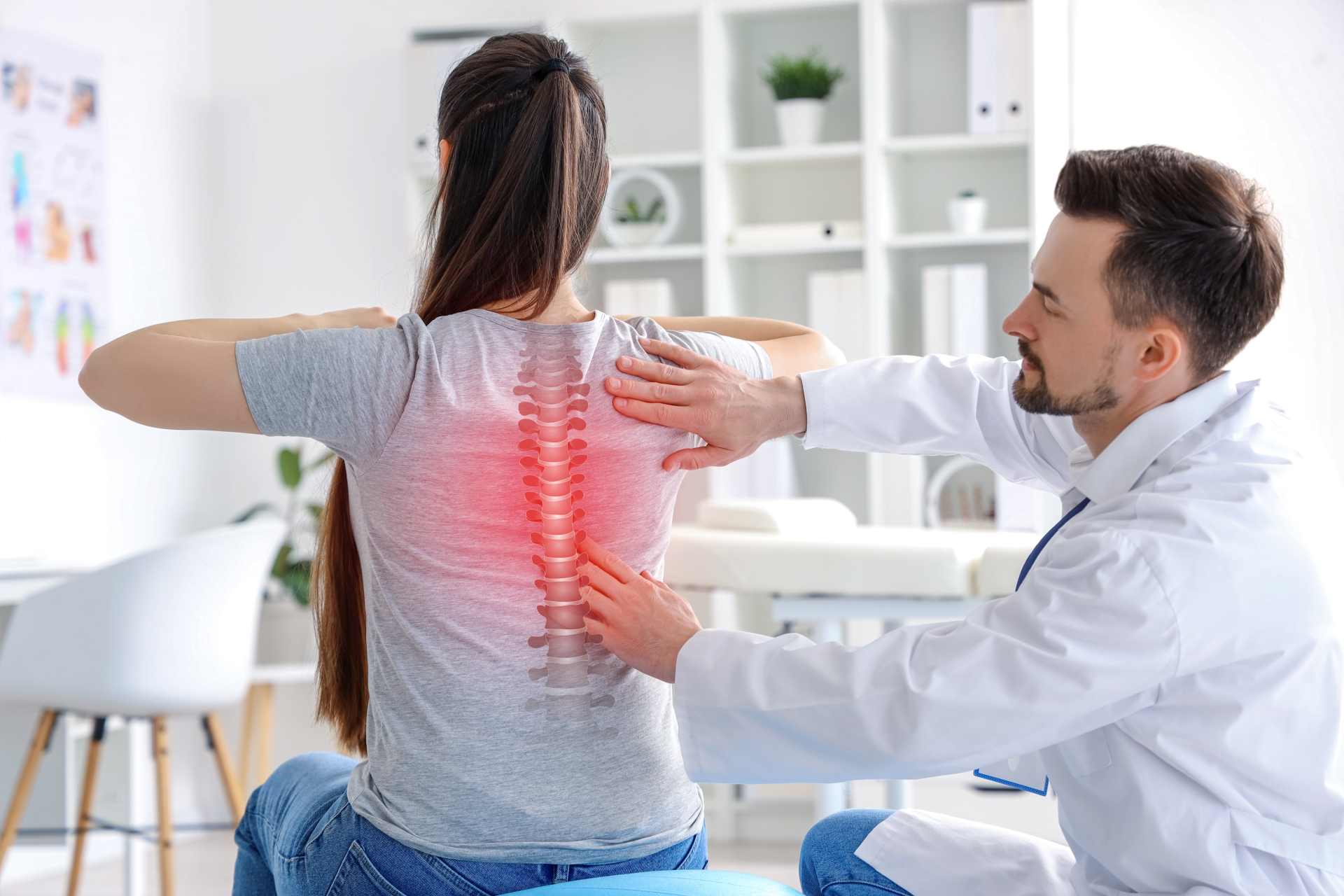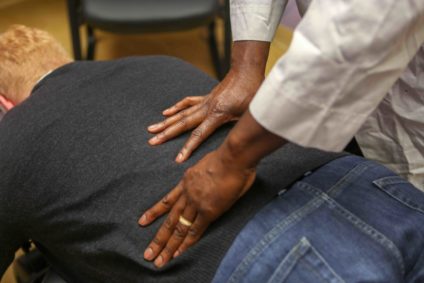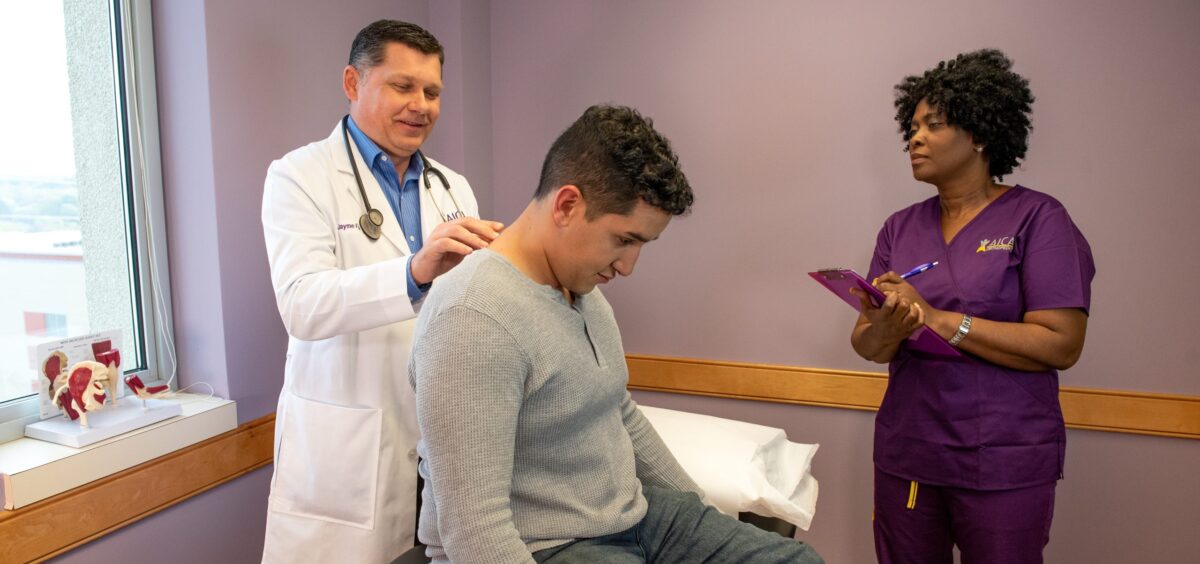The Nature of Spinal Pain
Your spine is called the “backbone” for a reason. It is responsible for communicating to every single body part, organ, and nerve. It’s made up of 33 vertebrae that must stay properly aligned and fully functioning for the body to function normally. Every vertebra is responsible for sending “messages” out to various parts of the body. That being said, if one of these is slightly off, you could be experiencing noticeable symptoms.
Spinal pain can range from minor to severe, from a simple annoyance to completely debilitating. It can affect the lower or upper part of the back, or it can radiate across the back, and it can even affect the neck, hips, and other areas of the body.
Spinal specialists at AICA Orthopedics treat a wide range of spinal problems. We specialize in musculoskeletal issues (composed of bones, ligaments and connective tissue), such as scoliosis, sciatica, osteoporosis, ruptured discs, spinal stenosis, spinal injuries, or even fractured vertebrae.
Should you experience spinal pain from one of these conditions, or if you don’t know the root cause of your back pain, our orthopedic spinal specialists can treat you to get you back to feeling your best once again. To experience the benefits of whole-body health, visit us today to address your spinal health and find a solution for the cause of your back pain.
What Causes Spine Pain?
Injury of the spine could happen to anyone. Simple movements or more severe trauma can all lead to spine pain. Here are some of the most common causes:
- Repetitive motions from sports or work
- Heavy lifting or lifting things improperly
- Lack of exercise or leading a sedentary lifestyle can weaken muscles in the back, making your spine and back more susceptible to injury over time
- Medical conditions such as scoliosis affect the spine and overall health
- Aging can weaken vertebrae. As aging occurs, bulging discs are also more likely to happen. A bulging disc presses on nerves and can lead to more serious concerns such as a herniated disc, degeneration of discs, or spinal stenosis.
It is important to be on alert for symptoms of spinal pain and seek proper care as soon as you notice something is amiss. Symptoms to look for, include loss of range of motion or inability to sit up straight, pain when trying to sit, stand, or walk, discomfort when lifting objects, stiffness or tightness in the upper or lower back, numbness, tenderness, or muscle spasms, or a dull or sharp pain in the back.


 Specialized physicians work to diagnose problems that cause spinal pain or discomfort.
Specialized physicians work to diagnose problems that cause spinal pain or discomfort. 











